
Find Help
More Items From Ergsy search
-

Is postnatal depression a long-term condition?
Relevance: 100%
-
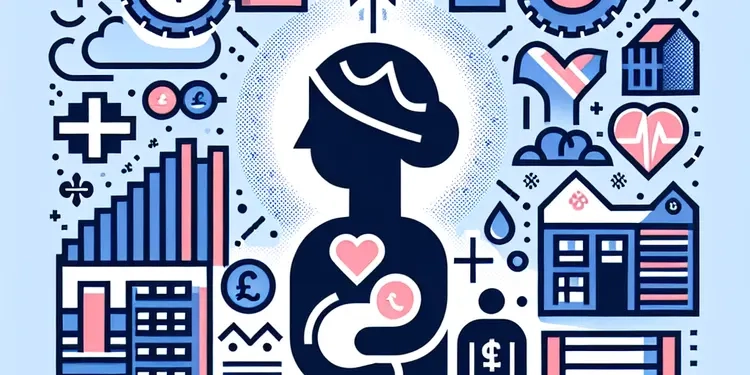
What is postnatal depression?
Relevance: 68%
-
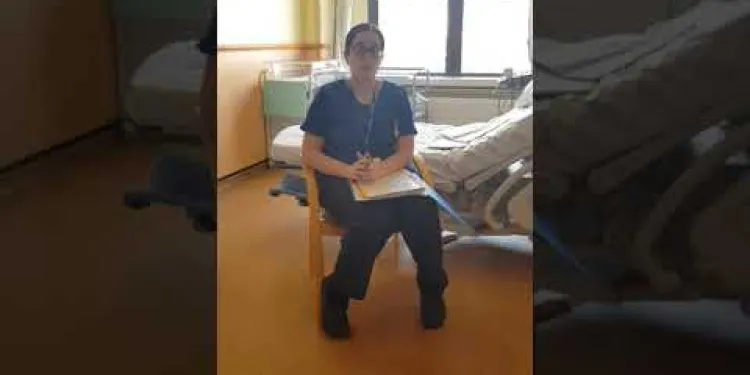
Postnatal Depression
Relevance: 67%
-
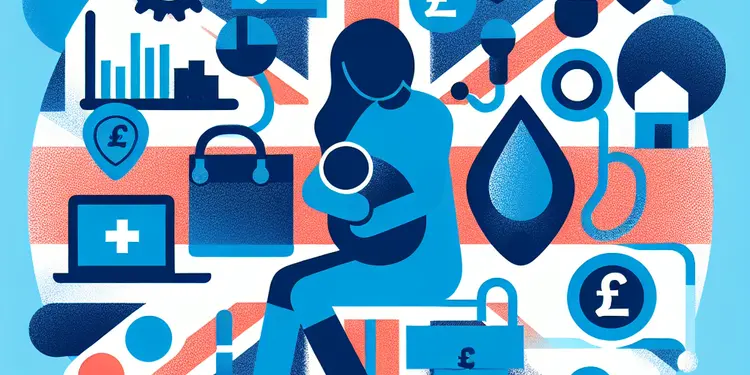
How is postnatal depression diagnosed?
Relevance: 65%
-
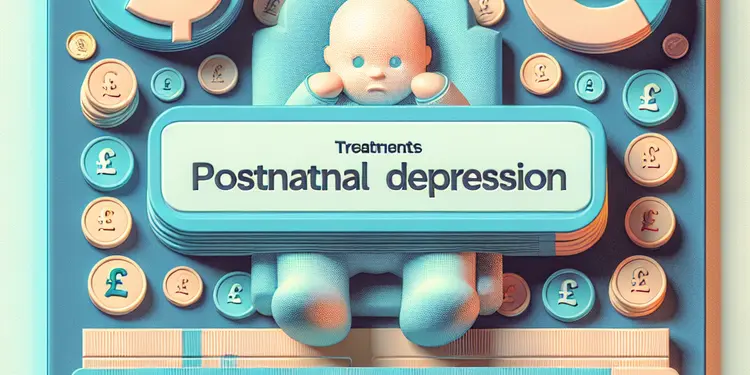
Are there treatments available for postnatal depression?
Relevance: 64%
-
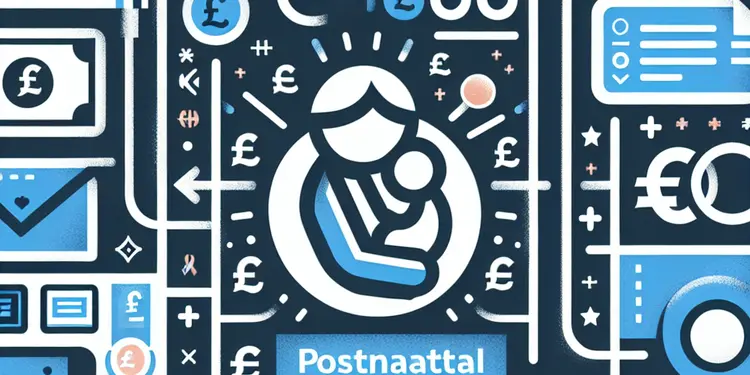
Is postnatal depression preventable?
Relevance: 63%
-

What causes postnatal depression?
Relevance: 63%
-

Postnatal Depression - Leanne's Story
Relevance: 62%
-

Can fathers experience postnatal depression?
Relevance: 61%
-
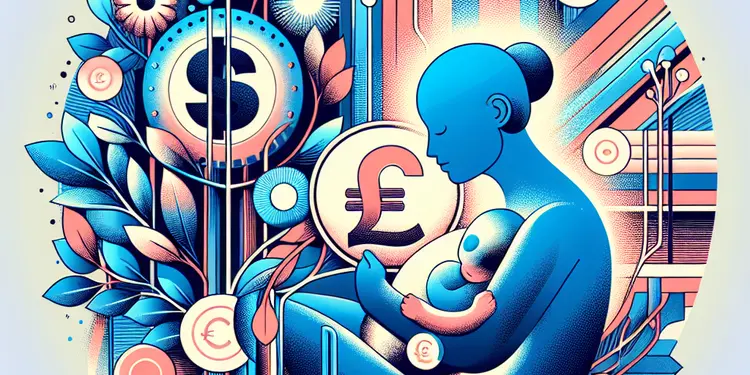
What are the symptoms of postnatal depression?
Relevance: 61%
-
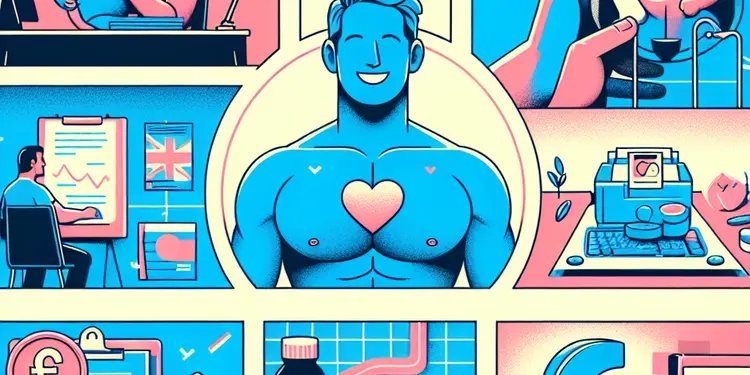
Is medication necessary for treating postnatal depression?
Relevance: 60%
-
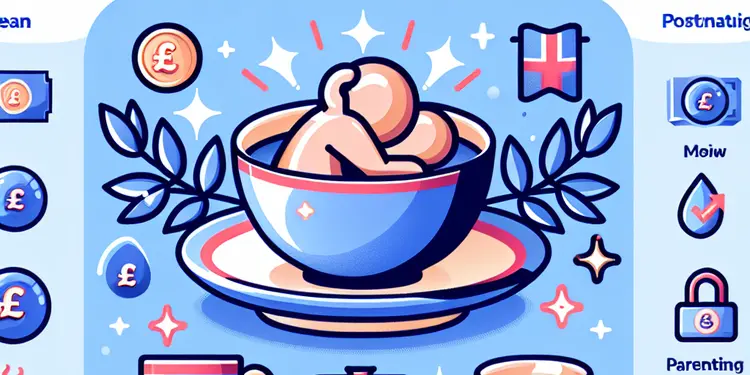
Are there support groups for postnatal depression?
Relevance: 60%
-

Can postnatal depression affect subsequent pregnancies?
Relevance: 59%
-

How do I know if I have postnatal depression? | NHS
Relevance: 59%
-
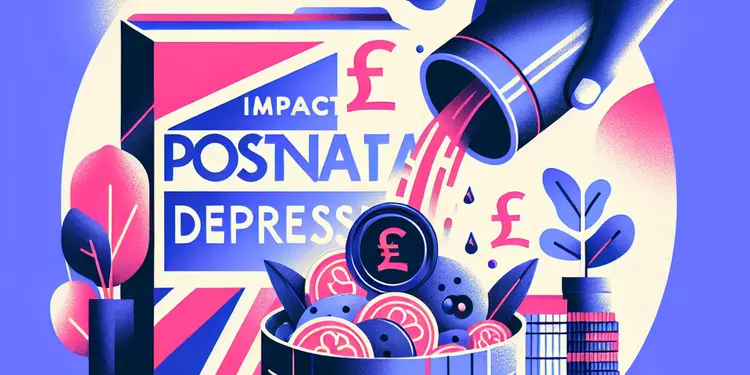
Can diet impact postnatal depression?
Relevance: 59%
-
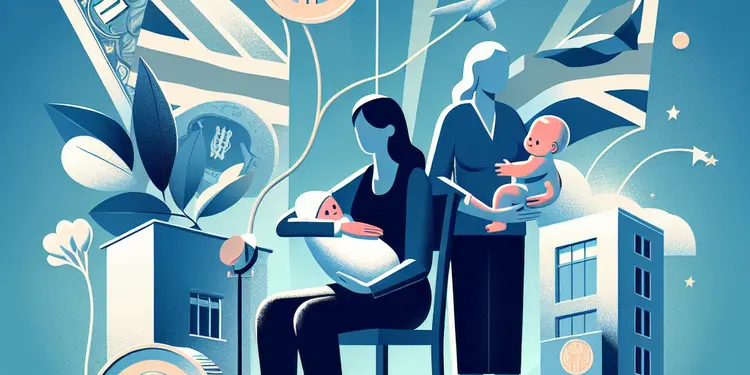
Can postnatal depression recur after treatment?
Relevance: 58%
-
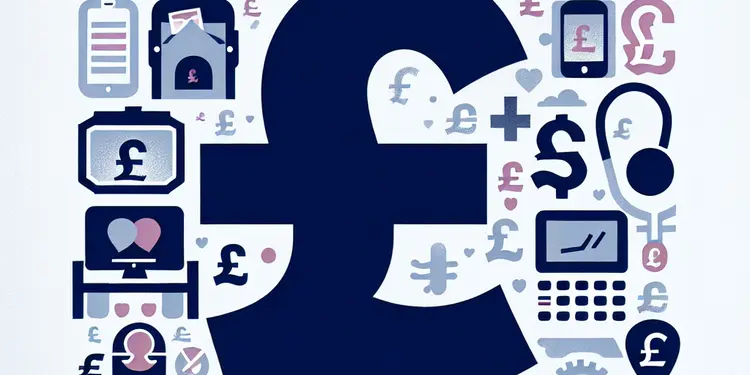
What should I do if I suspect I have postnatal depression?
Relevance: 58%
-

Can lifestyle changes help with postnatal depression?
Relevance: 57%
-

Should someone with postnatal depression seek professional help?
Relevance: 57%
-
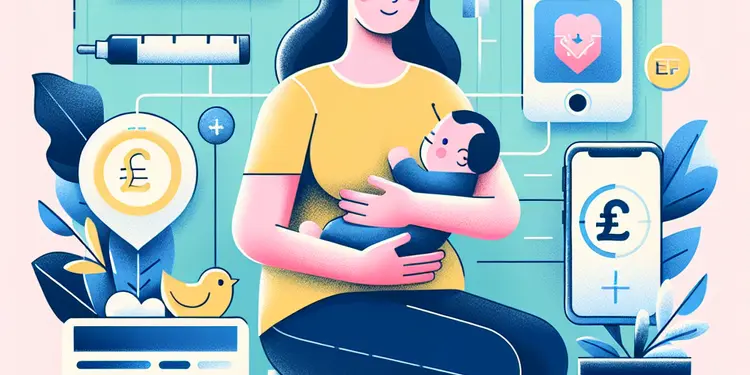
How is postnatal depression different from the 'baby blues'?
Relevance: 56%
-
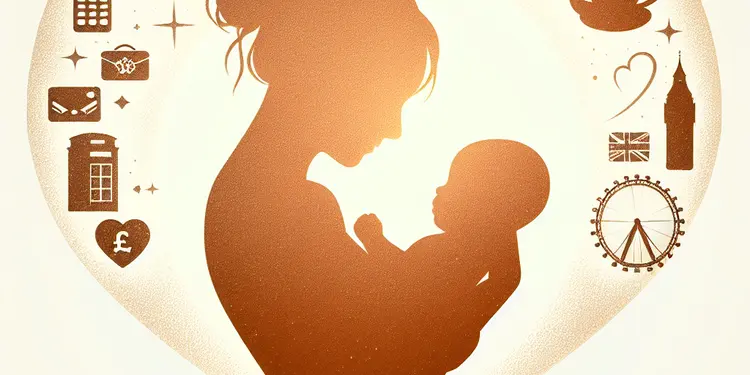
How does postnatal depression affect bonding with the baby?
Relevance: 56%
-
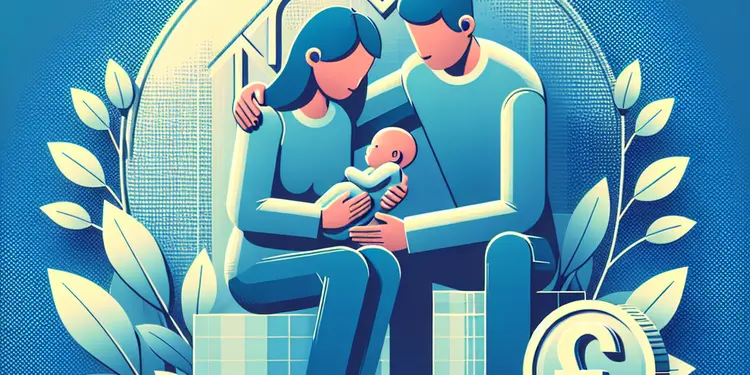
How can family members support someone with postnatal depression?
Relevance: 52%
-
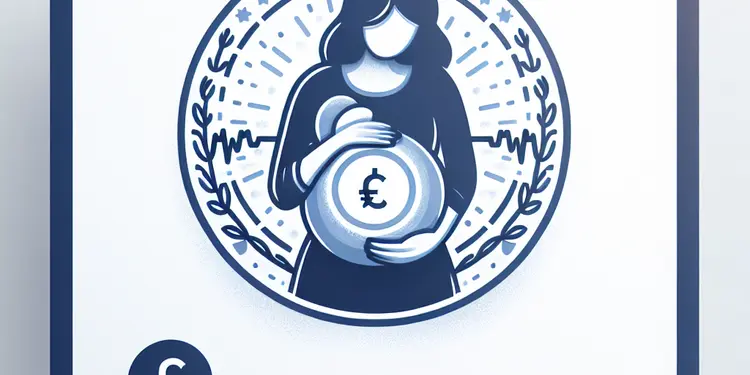
How soon after childbirth can postnatal depression occur?
Relevance: 39%
-
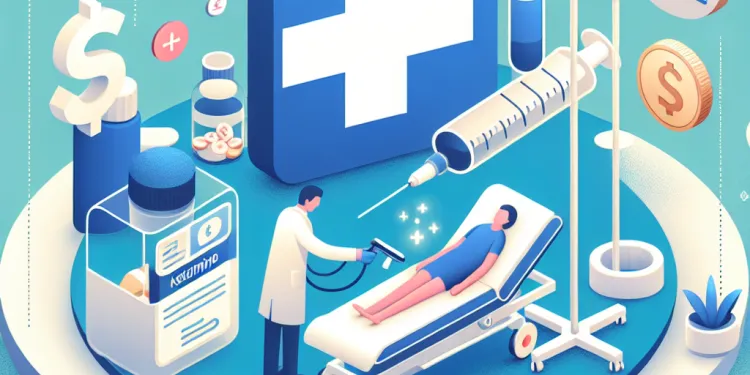
What conditions is ketamine used to treat?
Relevance: 31%
-
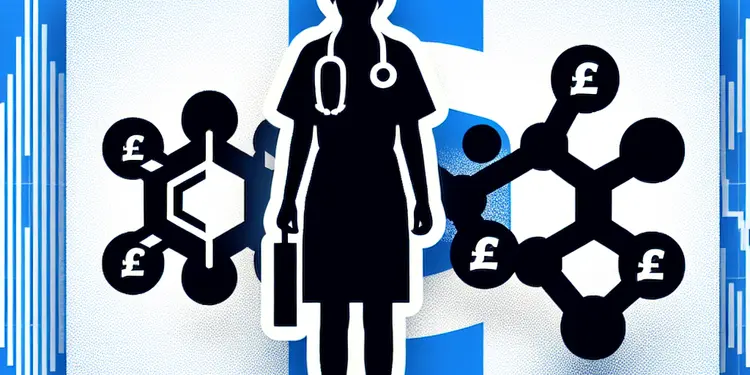
Can ketamine be prescribed for mental health conditions?
Relevance: 30%
-

Does ketamine have long-term effects?
Relevance: 29%
-

Treating anxiety and depression - www.slam.nhs.uk
Relevance: 28%
-

Can physical symptoms be linked to relationship-induced depression?
Relevance: 28%
-

Clinical depression: Lawrence's story | NHS
Relevance: 27%
-

Are there any long-term effects of Chikungunya infection?
Relevance: 27%
-

Can whiplash have long-term effects?
Relevance: 26%
-

Are there any long-term effects of gonorrhoea?
Relevance: 26%
-
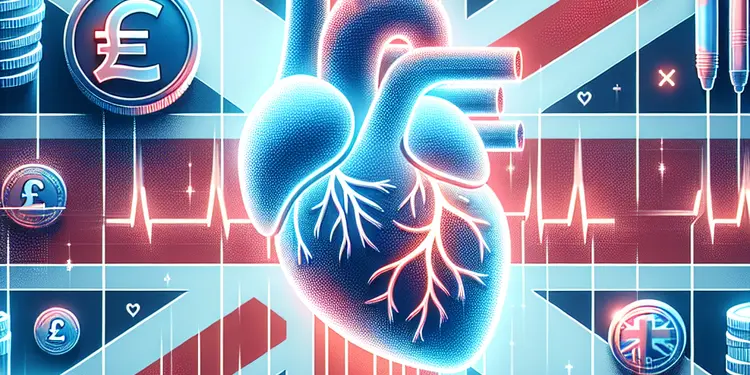
What are the long-term effects of a heart attack?
Relevance: 26%
-
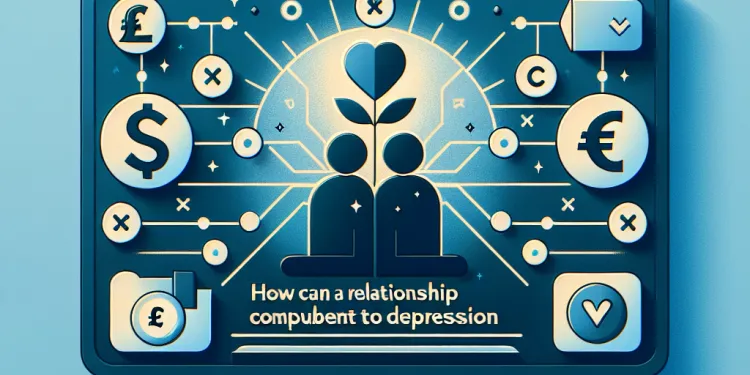
How can a relationship contribute to depression?
Relevance: 25%
-
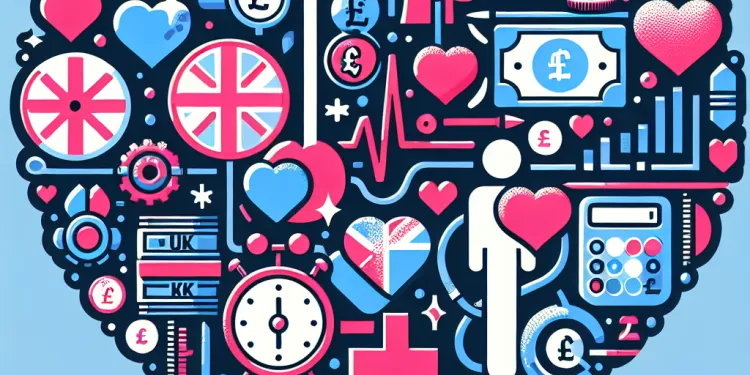
What are the signs that my relationship is making me depressed?
Relevance: 25%
-
What are the long-term effects of untreated eating disorders?
Relevance: 25%
-

Can meningitis cause long-term complications?
Relevance: 25%
-
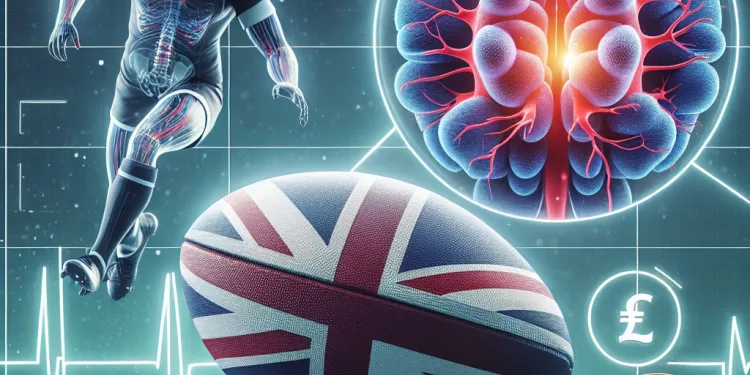
How do concussions impact long-term health in rugby players?
Relevance: 25%
-
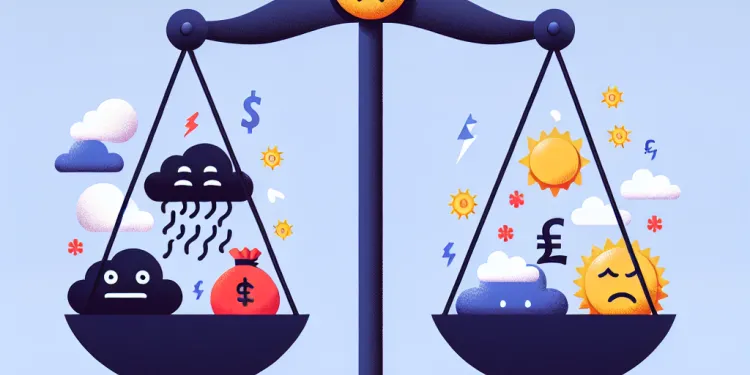
What role do unhealthy dynamics play in causing depression?
Relevance: 25%
-
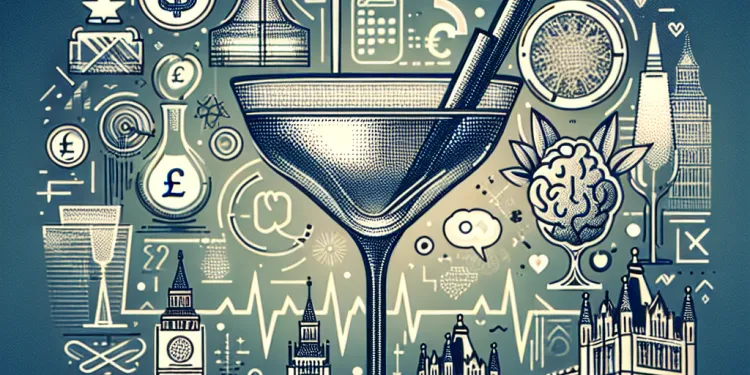
Can drink spiking cause long-term health effects?
Relevance: 24%
Understanding Postnatal Depression
Postnatal depression (PND) is a type of mood disorder that affects some women after childbirth. It is more severe than the "baby blues," which are common in the first weeks after giving birth, as it persists for a longer period and requires medical attention.
Duration of Postnatal Depression
For many women, postnatal depression begins within the first few weeks after giving birth, but it can also start months later. The duration of PND can vary significantly from person to person. Typically, with proper treatment and support, most mothers will start to feel better within six months to a year. However, some women may experience symptoms for a longer period of time.
Is Postnatal Depression a Long-term Condition?
Generally, postnatal depression is not considered a long-term condition if it is appropriately treated and managed. However, if left unaddressed, PND can have long-term implications. It can affect a mother’s ability to bond with her baby, her relationship with her partner, and her overall quality of life. Therefore, early diagnosis and treatment are crucial.
Sometimes, symptoms of PND can persist and evolve into a chronic condition. This is more likely if the individual has a previous history of depression or if there are other compounding factors such as lack of support, high stress, or additional mental health issues.
Treatment and Recovery
Numerous treatments are available for postnatal depression, including therapy, medication, and lifestyle changes. Cognitive-behavioral therapy (CBT) and interpersonal therapy (IPT) are commonly recommended. Antidepressants may be prescribed for more severe cases. In the UK, healthcare professionals typically provide a combination of these approaches to help new mothers recover.
Support groups and community services play a vital role in managing PND. Involving the family and partner can also aid recovery, as a supportive environment can make a significant difference.
Long-term Outlook
The long-term outlook for women who experience postnatal depression is generally positive, especially when it is managed early and effectively. Most women recover fully and do not experience long-lasting effects. However, awareness and understanding of PND are essential to ensure that affected individuals seek help promptly.
It is also important for healthcare providers to follow up with mothers who have had PND to monitor any recurring symptoms and provide the necessary support to prevent a relapse.
Conclusion
While postnatal depression isn’t inherently a long-term condition, it requires attention and appropriate care to ensure it doesn't lead to prolonged mental health issues. By fostering a supportive environment and encouraging open conversations about mental health, society can better address PND and improve outcomes for mothers and families.
Understanding Postnatal Depression
Postnatal depression (PND) is a kind of sadness some mothers feel after having a baby. It is stronger and lasts longer than feeling a little sad or "baby blues," which many women feel right after having a baby. PND needs help from a doctor.
How Long Does Postnatal Depression Last?
Most mothers feel PND a few weeks after having their baby, but it can also start later. How long it lasts is different for each person. With the right help, most mothers feel better in 6 months to a year. But some mothers might feel sad for longer.
Will Postnatal Depression Last Forever?
PND usually does not last forever if treated well. Without help, it can cause problems. It can make it hard for a mother to bond with her baby, affect her relationship with her partner, and make life hard. Getting help early is important.
Sometimes, PND can last a long time, especially if the mother has been sad before, has no one to help her, or is very stressed.
Getting Better from Postnatal Depression
There are many ways to feel better from PND. This includes talking to a therapist, taking medicine, and changing how you live. Two kinds of talking help, CBT and IPT, are often recommended. Sometimes, doctors give medicine for more serious cases. In the UK, doctors use different ways together to help mothers feel better.
Joining support groups and community programs is important. Having help from family and a partner can really help a mother feel better.
What Happens in the Future?
The future looks good for mothers who get help for PND early on. Most mothers get better and do not have problems later. It is important to know about PND so mothers get help quickly.
Doctors should keep in touch with mothers to check if they feel sad again and give help if needed.
Conclusion
Postnatal depression usually does not last forever, but it needs care and attention. By having support and talking about mental health, we can help mothers feel better and support them and their families.
Frequently Asked Questions
What is postnatal depression?
Postnatal depression is a type of mood disorder that affects some women after childbirth. It involves feelings of extreme sadness, anxiety, and fatigue that can make it difficult for new mothers to care for themselves or their baby.
How long can postnatal depression last?
Postnatal depression can last for different durations depending on the individual. Some women may experience symptoms for several weeks, while others may have symptoms that persist for months. In some cases, it can become a long-term condition if not treated.
Is postnatal depression considered a long-term condition?
Postnatal depression can become a long-term condition if not addressed. Early recognition and treatment are important in preventing the condition from becoming chronic.
Can postnatal depression resolve on its own?
While some women may experience an improvement in symptoms over time, it is important to seek professional help. Postnatal depression may not resolve on its own and can become more severe if left untreated.
What treatments are available for postnatal depression?
Treatments for postnatal depression include therapy, medication, and support groups. A healthcare provider can help determine the best treatment plan based on individual needs.
Is therapy effective for postnatal depression?
Yes, therapy, such as cognitive behavioral therapy (CBT), can be very effective in treating postnatal depression. Therapy can help new mothers manage their symptoms and develop coping strategies.
Are medications prescribed for postnatal depression?
Antidepressant medications may be prescribed for women with postnatal depression, especially if symptoms are severe. It's important to discuss the benefits and risks with a healthcare provider.
How can family support help with postnatal depression?
Family support can play a crucial role in recovery by providing emotional support, helping with childcare, and understanding the condition. Supportive environments can aid in the treatment process.
Are there long-term effects of untreated postnatal depression?
Untreated postnatal depression can lead to long-term effects including chronic depression and anxiety. It can also affect the bond between the mother and her child and impact the entire family.
Can postnatal depression affect subsequent pregnancies?
Women who have faced postnatal depression in a previous pregnancy might have a higher risk in future pregnancies. It's important for these women to discuss their mental health history with healthcare providers.
Is postnatal depression the same as 'baby blues'?
No, postnatal depression is not the same as 'baby blues'. The 'baby blues' typically involves mood swings and mild depression lasting a few days to two weeks after delivery, whereas postnatal depression is more severe and lasts longer.
How common is postnatal depression?
Postnatal depression affects approximately 10-15% of new mothers. It can occur after any childbirth, not just the first.
Is there a way to prevent postnatal depression?
While there is no guaranteed way to prevent postnatal depression, maintaining a strong support system, managing stress, and seeking help early can reduce the risk.
What risk factors are associated with postnatal depression?
Risk factors include a history of depression, anxiety, lack of support, stressful life events, and complications during childbirth.
How soon after giving birth can postnatal depression occur?
Postnatal depression can occur anytime within the first year after giving birth, but it commonly starts within the first three months.
Can fathers experience postnatal depression?
Yes, fathers can also experience postnatal depression. While less common, it can affect men due to new responsibilities and lifestyle changes after the birth of a child.
What should I do if I suspect I have postnatal depression?
If you suspect you have postnatal depression, it is important to seek help from a healthcare professional as soon as possible for a diagnosis and appropriate treatment.
Can lifestyle changes help with postnatal depression?
Yes, lifestyle changes such as regular physical activity, a healthy diet, and sufficient sleep can help improve symptoms. However, they should complement professional treatment.
Is postnatal depression linked to hormonal changes?
Yes, hormonal changes after childbirth are believed to play a significant role in the development of postnatal depression. However, it's also influenced by psychological and social factors.
Is it important to talk to others about postnatal depression?
Talking to others and sharing your experiences can be very beneficial. It helps reduce feelings of isolation and provides a support network that can aid recovery.
What is postnatal depression?
After having a baby, some parents feel very sad. This is called postnatal depression. It is more than just feeling a bit upset. It can make looking after a baby hard.
If you feel this way, it is important to talk to someone who can help, like a doctor.
Here are some things that might help:
- Talk with friends or family
- Rest when the baby is sleeping
- Try to eat healthy food
- Join a group for new parents
Postnatal depression is a kind of sadness some mums feel after having a baby. It makes them feel very sad, worried, and tired. This can make it hard for them to take care of themselves or their baby.
How long can feeling sad after having a baby last?
After having a baby, some parents can feel very sad or worried. This is called postnatal depression.
Postnatal depression can last for a short time, like a few weeks. But sometimes, it can last longer, like many months.
If you feel sad or worried after having a baby, tell a doctor or a nurse. They can help you feel better.
Talking to friends or family can also help. Remember, you are not alone, and people want to help you feel happy again.
After having a baby, some moms feel very sad. This is called postnatal depression. It can last for different amounts of time. Some moms feel better after a few weeks. Others might feel sad for many months. If they don't get help, it can last a long time.
Can postnatal depression last a long time?
Postnatal depression can sometimes last for a long time. It affects how you feel after having a baby. If you feel sad or upset for more than two weeks, talk to a doctor. They can help you feel better.
Try using simple tools like drawing or talking to a friend. These can help you understand your feelings. Watching happy or calming videos might also help.
After having a baby, some parents feel very sad, and this is called postnatal depression. If it is not looked after, it can last a long time. It is important to see it early and get help so it does not last forever.
Can feeling very sad after having a baby go away by itself?
Some women might feel better over time. But it is very important to get help from a doctor. Postnatal depression might not go away by itself. It can get worse if you don’t get help.
What helps if you feel very sad after having a baby?
If you feel very sad after your baby is born, there are ways to help you feel better.
Here are some things that can help:
- Talk to Someone: Tell a doctor or a nurse how you feel. They are there to help you.
- Therapy: Talking to a special doctor, called a therapist, can help you understand your feelings.
- Medicine: Some pills, called medicine, can help you feel better. A doctor can tell you which ones are good for you.
- Support Groups: Joining a group of other parents can help. You can share your feelings and listen to others.
Remember, it is okay to ask for help. You are not alone.
If a new mom feels very sad after having a baby, there are things that can help. Talking to a doctor or counselor can be good. Medicine might help too. Joining a group with other moms to talk can also be helpful. A doctor can help find the best way to feel better.
Does therapy help with feeling sad after having a baby?
Some new parents feel very sad after their baby is born. This is called postnatal depression. Talking to a therapist can help them feel better.
A therapist is a person who listens and helps you with your feelings. They can teach you ways to feel happier and solve problems.
Using tools like drawing or writing in a diary can also help you share your feelings.
If you feel very sad after having a baby, it is important to talk to someone you trust, like a family member, a friend, or a doctor. They can help you find the right support.
Yes, talking to someone like a therapist can really help new moms who feel very sad after having a baby. This is called postnatal depression. A special kind of talking called cognitive behavioral therapy (CBT) can be very useful. It helps moms feel better and learn ways to handle their feelings.
Do doctors give medicine for feeling sad after having a baby?
If you feel very sad after having a baby, a doctor can help you. They might give you medicine to feel better.
Here are some ways to feel better:
- Talk to people you trust, like family and friends.
- Join a support group for new moms.
- Try relaxing activities like deep breathing.
It's important to ask a doctor if you have questions. They can help you find the right support.
Doctors might give medicine to help mothers who feel very sad after having a baby. If the sadness is really strong, the medicine is important. It's good to talk with a doctor to understand how the medicine can help and if there are any worries.
How can family help with feeling sad after having a baby?
Having a new baby is a big change. Sometimes, new mums feel very sad. This is called "postnatal depression".
Family can help in these ways:
- Talk and Listen: Sit with the new mum. Listen to how she feels. It helps her know she is not alone.
- Help with Baby: Offer to look after the baby. This gives the mum time to rest.
- Do Housework: Help around the house. Cook or clean to make things easier for the mum.
- Encourage Rest: Make sure the mum gets sleep and takes breaks.
- Be Patient: Understand that feeling better takes time.
Families can also suggest talking to a doctor or nurse. They can help, too.
Families can help a lot with getting better. They can give love and support, help look after kids, and learn about the illness. A caring home can make getting better easier.
What happens if postnatal depression is not treated for a long time?
If someone has postnatal depression and doesn't get help, it can affect them for a long time. They might feel sad, tired, or angry often. This can make it hard to take care of themselves and their baby.
It's important to talk to a doctor or someone you trust if you feel like this. They can help. Talking about your feelings can make things better.
Using tools like drawing or keeping a diary can help people share their feelings. Also, being with friends or doing things you enjoy can make you feel happier.
If a new mom feels very sad and doesn't get help, it can cause problems for a long time. She might keep feeling sad and worried. It can also make it hard for her to be close to her baby, and it can be tough for the whole family.
Can feeling very sad after having a baby happen again in the next pregnancy?
If a woman felt very sad after having a baby before, she might feel the same way with another baby. It is important for her to talk about how she feels with a doctor or nurse.
Is postnatal depression the same as 'baby blues'?
After having a baby, some mums feel sad or down. This is called 'baby blues'. It is very common and usually lasts a few days.
Postnatal depression is different. It is a stronger feeling of sadness that lasts longer. It needs more help to get better.
If you feel sad for many days, talk to a doctor. You can also ask family and friends for support. There are people who can help you feel better.
No, postnatal depression is not the same as 'baby blues'.
'Baby blues' means feeling sad and having mood swings. This happens a few days after having a baby and usually goes away in two weeks.
Postnatal depression is more serious. It lasts longer and can make you feel very sad or upset.
If you feel like this, talk to a doctor or someone you trust.
How often do new parents feel sad after having a baby?
Some new mothers feel very sad or worried after having a baby. This happens to about 10-15 out of every 100 new mothers. It can happen after any baby is born, not just the first baby.
Can you stop feeling sad after having a baby?
Some mums feel very sad after having their baby. This is called postnatal depression.
Here are some ways to feel better:
- Talk to someone you trust about how you feel.
- Get rest and sleep when your baby sleeps.
- Eat healthy food and drink water.
- Ask family or friends for help with the baby.
- See a doctor if you are still feeling sad.
There is no sure way to stop postnatal depression. But you can lower the risk by:
- Having people around you who can help and support you.
- Finding ways to handle stress well.
- Asking for help as soon as you feel you might need it.
What things can make it more likely to get postnatal depression?
Things that might make someone feel sad or worried include:
- Feeling very sad before in their life
- Feeling worried or scared a lot
- Not having people to help them
- Having big and hard changes in life
- Having problems when having a baby
If you feel this way, here's how to get help:
- Talk to a friend or family member
- See a doctor or counselor
- Write down your feelings
- Try calming exercises like deep breathing
When can feelings of sadness happen after having a baby?
Sometimes new mums can feel sad after having a baby. This is called postnatal depression. It can start soon after the baby is born, or even weeks later.
If you or someone you know feels sad for a long time, talk to a doctor or nurse. They can help. You can also look for support groups for new mums.
Having a baby can make some people feel very sad or worried. This is called postnatal depression. It can happen in the first year after the baby is born, but it usually starts in the first three months.
If you feel this way, talk to a doctor or someone you trust. You can also try writing in a diary or talking to other parents for support.
Can dads feel sad after a baby is born?
Yes, dads can feel sad after a baby is born. This is called postnatal depression. It happens because being a dad brings new jobs and changes in life. It is not as common in dads as it is in mums, but it can still happen.
What should I do if I think I have postnatal depression?
If you feel sad or not yourself after having a baby, tell someone. Here are some things that can help:
- Talk to a Doctor: They can help you feel better.
- Share with Family or Friends: Tell someone you trust how you feel.
- Rest: Try to sleep when your baby sleeps. It can help you feel better.
- Join a Group: Meet other new parents. You can help each other.
- Exercise: A little walk can lift your mood.
Remember, you are not alone. Many new parents feel this way. Asking for help is very brave.
If you think you might have postnatal depression, it is important to talk to a doctor or nurse. They can help you find out if you have it and how to feel better.
Can changing how you live help with feeling sad after having a baby?
Yes, making changes in how you live can help. Doing things like exercising often, eating healthy foods, and getting enough sleep can make you feel better. But remember, these should be done along with what your doctor says.
Do hormones cause sadness after having a baby?
After having a baby, changes in your body's hormones can make you feel very sad or worried. This is called postnatal depression. Other things like how you feel inside and things happening around you can also make it happen.
Talking to a friend or family member about how you feel can help. There are also special people like doctors who can support you.
Should you talk to someone if you feel sad after having a baby?
It's good to talk to other people and tell them how you feel. This can help you feel less alone and give you friends who can help you get better.
Useful Links
This website offers general information and is not a substitute for professional advice.
Always seek guidance from qualified professionals.
If you have any medical concerns or need urgent help, contact a healthcare professional or emergency services immediately.
Some of this content was generated with AI assistance. We’ve done our best to keep it accurate, helpful, and human-friendly.
- Ergsy carfully checks the information in the videos we provide here.
- Videos shown by Youtube after a video has completed, have NOT been reviewed by ERGSY.
- To view, click the arrow in centre of video.
- Most of the videos you find here will have subtitles and/or closed captions available.
- You may need to turn these on, and choose your preferred language.
- Go to the video you'd like to watch.
- If closed captions (CC) are available, settings will be visible on the bottom right of the video player.
- To turn on Captions, click settings .
- To turn off Captions, click settings again.
More Items From Ergsy search
-

Is postnatal depression a long-term condition?
Relevance: 100%
-

What is postnatal depression?
Relevance: 68%
-

Postnatal Depression
Relevance: 67%
-

How is postnatal depression diagnosed?
Relevance: 65%
-

Are there treatments available for postnatal depression?
Relevance: 64%
-

Is postnatal depression preventable?
Relevance: 63%
-

What causes postnatal depression?
Relevance: 63%
-

Postnatal Depression - Leanne's Story
Relevance: 62%
-

Can fathers experience postnatal depression?
Relevance: 61%
-

What are the symptoms of postnatal depression?
Relevance: 61%
-

Is medication necessary for treating postnatal depression?
Relevance: 60%
-

Are there support groups for postnatal depression?
Relevance: 60%
-

Can postnatal depression affect subsequent pregnancies?
Relevance: 59%
-

How do I know if I have postnatal depression? | NHS
Relevance: 59%
-

Can diet impact postnatal depression?
Relevance: 59%
-

Can postnatal depression recur after treatment?
Relevance: 58%
-

What should I do if I suspect I have postnatal depression?
Relevance: 58%
-

Can lifestyle changes help with postnatal depression?
Relevance: 57%
-

Should someone with postnatal depression seek professional help?
Relevance: 57%
-

How is postnatal depression different from the 'baby blues'?
Relevance: 56%
-

How does postnatal depression affect bonding with the baby?
Relevance: 56%
-

How can family members support someone with postnatal depression?
Relevance: 52%
-

How soon after childbirth can postnatal depression occur?
Relevance: 39%
-

What conditions is ketamine used to treat?
Relevance: 31%
-

Can ketamine be prescribed for mental health conditions?
Relevance: 30%
-

Does ketamine have long-term effects?
Relevance: 29%
-

Treating anxiety and depression - www.slam.nhs.uk
Relevance: 28%
-

Can physical symptoms be linked to relationship-induced depression?
Relevance: 28%
-

Clinical depression: Lawrence's story | NHS
Relevance: 27%
-

Are there any long-term effects of Chikungunya infection?
Relevance: 27%
-

Can whiplash have long-term effects?
Relevance: 26%
-

Are there any long-term effects of gonorrhoea?
Relevance: 26%
-

What are the long-term effects of a heart attack?
Relevance: 26%
-

How can a relationship contribute to depression?
Relevance: 25%
-

What are the signs that my relationship is making me depressed?
Relevance: 25%
-
What are the long-term effects of untreated eating disorders?
Relevance: 25%
-

Can meningitis cause long-term complications?
Relevance: 25%
-

How do concussions impact long-term health in rugby players?
Relevance: 25%
-

What role do unhealthy dynamics play in causing depression?
Relevance: 25%
-

Can drink spiking cause long-term health effects?
Relevance: 24%


